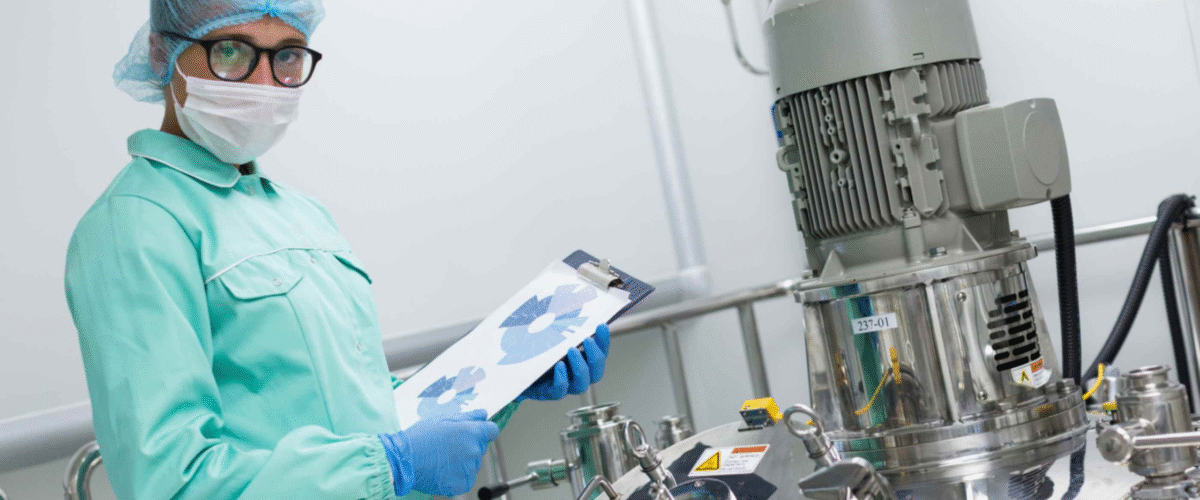How Do Pigging Equipment Manufacturers Support Compliance in Regulated Industries?
In the highly regulated industrial environment of today, compliance is not only necessary but also essential. To guarantee product safety, quality, and operational effectiveness, industries such as food and beverage, chemicals, paint, and cosmetics are subject to stringent regulations. Maintaining compliance in these industries can be challenging, especially when pipelines, fluid transfer, and product recovery are involved.
Manufacturers of pigging equipment manufacturers are essential in this situation, as they offer solutions that help businesses meet strict regulatory requirements while also optimizing operations.
Understanding the Importance of Compliance in Regulated Industries
Many rules, including the Food Safety Modernization Act (FSMA), Good Manufacturing Practices (GMP), and other national and international laws, apply to regulated businesses. These rules are intended to safeguard consumers, avoid contamination, and guarantee that goods fulfill quality requirements.
Penalties, product recalls, and serious harm to one’s reputation may follow non-compliance. Maintaining compliance for businesses that depend on pipelines, processing lines, and liquid product transfer entails making sure that all product is recovered, preventing cross-contamination, and keeping pipelines safe and clean.
Role of Pigging Equipment in Compliance
“Pigging” refers to the process of using devices known as “pigs” to clean, scrape, or push products through pipelines. Beyond operational efficiency, pigging systems are critical for compliance in regulated industries. Here’s how:
Maintaining Hygiene and Cleanliness: Product safety may be jeopardized by pipeline contamination. Manufacturers of pigging equipment create methods that completely clean pipelines after every batch, lowering the possibility of cross-contamination. This is essential for fulfilling regulatory requirements in industries including food, beverage, and paint.
Precise Product Recovery: Businesses that deal with valuable liquids, such as sauces, juices, or chemicals, need to optimize product recovery while minimizing waste. Pigging systems assist in removing almost all the leftover product inside the pipeline, thereby guaranteeing both operational effectiveness and adherence to industry standards for product consistency and waste.
Documentation and Traceability: Detailed records of cleaning and processing processes are necessary in many regulated businesses. Contemporary pigging systems frequently have logging and monitoring capabilities, enabling businesses to keep accurate records. Manufacturers of pigging equipment incorporate these elements to facilitate compliance checks and audits.
Cutting Down on Chemical Use: Conventional cleaning methods use a lot of chemical cleaning agents, which raises regulatory and environmental concerns. By mechanically eliminating residues, pigging reduces the need for excessive chemicals, thus promoting sustainability objectives and regulatory compliance.

How Pigging Equipment Manufacturers Ensure Regulatory Standards Are Met
Pigging equipment manufacturers do not just produce standard pigs and pipelines; they design solutions tailored to the compliance requirements of different industries. Here are some key ways they support regulated industries:
1. Tailored Approaches to Industry-Specific Laws
The standards for compliance vary depending on the regulated industry. The chemical industry prioritises safety and accurate recovery, the food and beverage industry demands hygienic practices and traceability, and the paint industry demands sterility and contamination prevention. Manufacturers of pigging equipment create unique solutions that satisfy these precise requirements.
2. Safety and Material Compliance
Pigging equipment materials are essential for compliance. The use of non-toxic, corrosion-resistant, food-grade materials in pigs and pipelines is frequently required by regulatory bodies. By ensuring that every component satisfies these requirements, skilled pigging equipment manufacturers lower the risks associated with audits.
3. Combining Cleaning and Monitoring Procedures
Modern pigging systems are made to work in unison with automated monitoring systems and Cleaning-in-Place (CIP) procedures. This integration guarantees automatic generation of detailed records and effective pipeline cleaning. Manufacturers of pigging equipment offer systems that can satisfy the documentation requirements of regulatory agencies, which frequently demand proof of such procedures.
4. Assisting with Compliance Verification and Audits
Working in a regulated industry involves regular audits. Businesses need to prove that their processing lines and pipelines are hygienic, secure, and effective. Reputable manufacturers’ pigging systems frequently come with sensors, reporting tools, and monitoring systems that assist businesses in providing clear data for audits. This lowers the possibility of fines for non-compliance and directly promotes regulatory compliance.
Benefits of Using Expert Pigging Equipment Manufacturers
Beyond improving operational efficiency, collaborating with knowledgeable pigging equipment manufacturers offers several advantages:
- Regulatory Confidence: Companies may function knowing that their systems adhere to legal requirements.
- Decreased Contamination Risk: Product leftovers are kept out of pipelines by well-designed pigging devices.
- Operational Efficiency: Lower operating costs result from quicker cleaning, better product recovery, and less chemical use.
- Sustainability: As environmental compliance becomes more regulated, less use of chemicals and water helps.
- Traceability: Audit procedures are made simpler by integrated monitoring and documentation.
Choosing the Right Pigging Equipment Manufacturer
Making the correct manufacturer choice is essential to guaranteeing compliance. Here are some customizations:
- Industry Experience: Contact manufacturers who have a history of success in regulated sectors.
- Customisation Capabilities: The manufacturer must be able to provide solutions that are suited to your operational and compliance requirements.
- Customizations: A manufacturer’s adherence to regulatory requirements is demonstrated by ISO, GMP, and other certifications.
- Support and Upkeep: Dependable post-purchase assistance guarantees that your system will continue to be compliant over time.
- Technology Integration: Additional compliance benefits are offered by manufacturers who offer automated monitoring, documentation, and integration with CIP systems.
Conclusion
Pigging systems are essential to attaining compliance, which is a non-negotiable requirement in regulated businesses. Companies may guarantee product recovery, traceable operations, and pipeline cleanliness by collaborating with knowledgeable pigging equipment manufacturers. These factors are crucial for adhering to stringent industry requirements. These businesses offer the equipment required to work effectively and with assurance, from specialized designs to cutting-edge monitoring solutions.
Purchasing top-notch pigging equipment helps you protect your goods, clients, and reputation while also increasing operational efficiency and fostering a compliance-first culture.

